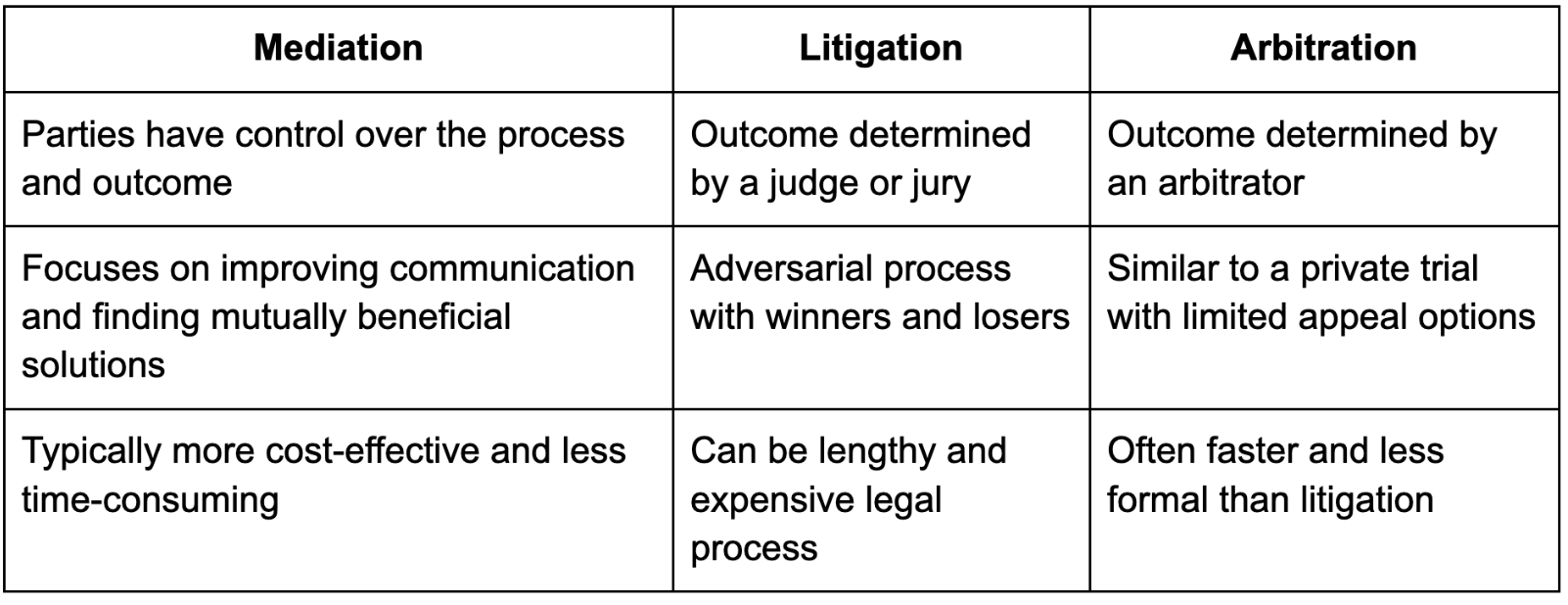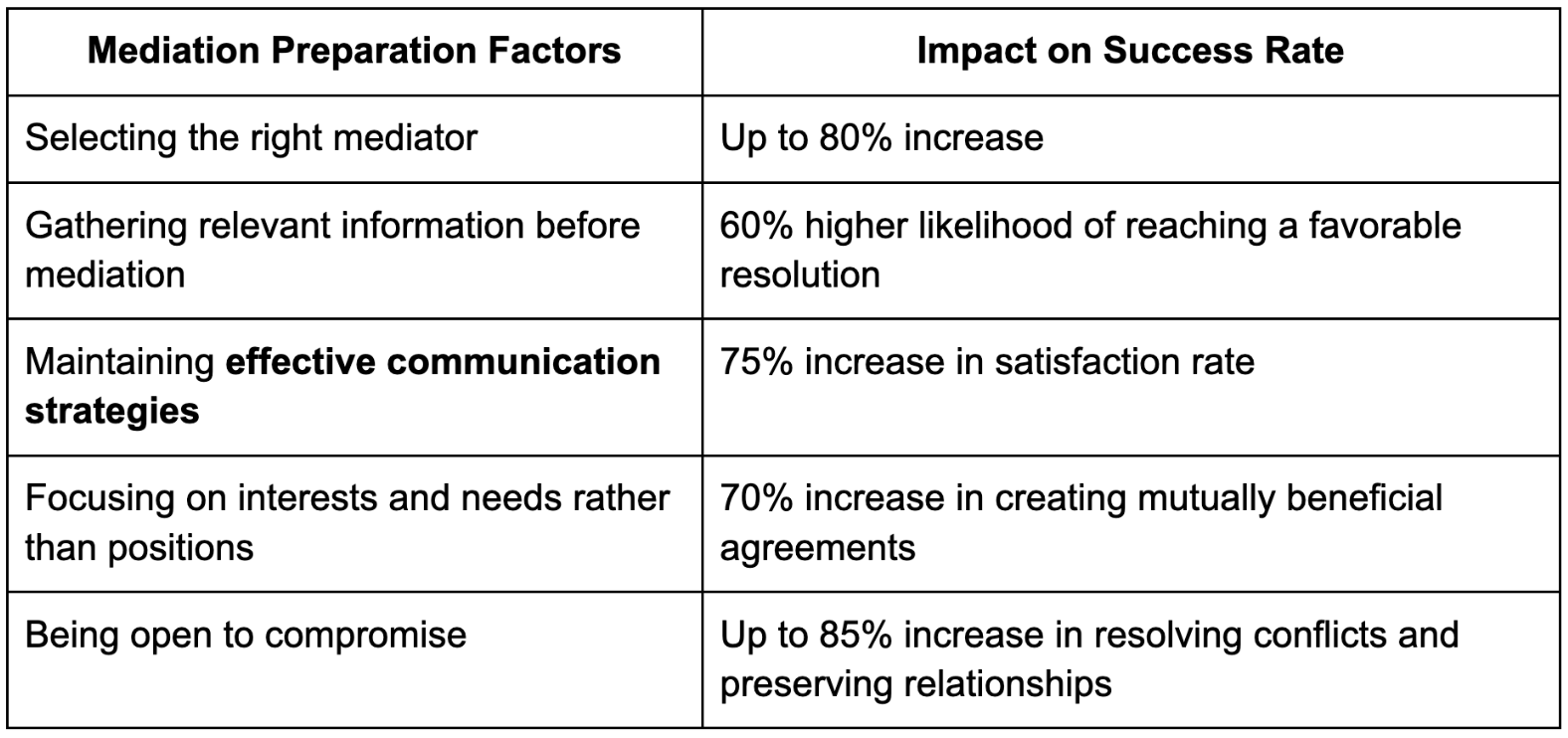About 40-50% of married couples in the United States get divorced. This shows how common divorce is. Mediation is a good way to solve family disputes, especially in divorce and child custody cases. It uses a neutral third party, the mediator, to help both sides talk and find a solution.
Mediation has many benefits. It lets you control the outcome, saves money, improves communication, and reduces stress. But, it also has some downsides. These include power imbalances, no legal help, and not working for all types of conflicts. Knowing what mediation can and can't do is key to making the right choice for your family's problems.
This article will dive into the basics of family mediation. We'll look at its main benefits and important limitations. This will help you decide if mediation is the best way to solve your family's disputes.
Understanding the Fundamentals of Family Mediation
Family mediation is a way to solve problems without going to court. It helps with issues like child custody, money problems, and when families can't talk well. A neutral third party, the mediator, helps everyone talk and find solutions they can agree on.
The Role of a Neutral Mediator
The mediator's job is to make a safe space for everyone to share their thoughts. They don't decide who's right or wrong. Instead, they help find ways for everyone to agree and find a solution.
Key Principles of the Mediation Process
- Voluntary participation: Parties must willingly engage in the mediation process without coercion.
- Confidentiality: The discussions and information shared during mediation sessions are kept private and confidential.
- Impartiality: The mediator maintains neutrality and does not take sides or advocate for any particular outcome.
Distinguishing Mediation from Other Dispute Resolution Methods
Mediation is different from going to court or arbitration. It lets the parties control the outcome and is often cheaper and less stressful. It focuses on improving communication and finding solutions that work for everyone.

Learning about family mediation helps parties decide if it's right for them. It's about finding a way to solve problems that works for everyone involved.
Benefits and Advantages of Choosing Family Mediation
Family mediation is a cost-effective and efficient way to solve disputes. It's faster than going to court, often resolving issues in weeks, not months or years.
Mediation is also cost-effective. Unlike court battles, which can be very expensive, mediation aims to save money. It focuses on quick, collaborative solutions to cut down legal fees.
Mediation is private and confidential, unlike public courtrooms. This makes it better for sensitive family matters. It reduces stress and emotional strain.
It also helps improve family communication. This is especially good when there are kids involved. Studies show that parents who mediate are more likely to stay involved in their children's lives.
Lastly, mediation offers flexible solutions. It lets families create their own unique agreements. This is something traditional litigation can't always do.

Choosing family mediation helps individuals deal with family disputes. It offers a cost-effective, collaborative, and tailored approach. A neutral third-party guides the process.
Essential Limitations and Potential Drawbacks
Family mediation has many benefits, but it also has some limits. One big issue is power imbalances between the parties. Mediators try to make things fair, but power can still play a role.
Another problem is the lack of legal advice during mediation. Without lawyers, people might not know their rights. Mediators can't give legal advice, so getting outside help is crucial, especially in tough cases.
Circumstances Where Mediation May Not Be Suitable
Mediation isn't right for everyone. It's not good for cases of abuse, violence, or when one person doesn't want to talk. In these situations, mediation can't fix the deep issues. Also, for very complex cases, like high-conflict divorces, court might be better.
Mediation doesn't always work out. If one side doesn't agree, talks can fail. This might lead to more fights or needing court help.
Family mediation is useful, but we must think about its limits. It's key to make sure it fits the situation. Getting legal advice and understanding the downsides helps make the right choice.
Preparing for a Successful Mediation Process
Getting ready for family mediation is key. Everyone should be open and ready to negotiate fairly. Talking to a mediator privately can help understand each person's needs and rights.
Being patient and open-minded is important. Listening and being willing to compromise are crucial. Setting realistic goals and being ready to give in can help a lot.
Clear and honest talk helps understand each other's views. The goal is to find a solution that meets everyone's needs. Knowing your legal rights and understanding the issues can make mediation better.
Effective Communication Strategies
- Maintain a respectful and constructive tone throughout the mediation process.
- Focus on understanding each other's interests and needs rather than just positions.
- Actively listen to the other party and show empathy for their concerns.
- Communicate openly and honestly to build trust and find common ground.
Goal Setting and Compromise
- Set realistic goals and expectations for the mediation process.
- Be willing to make reasonable concessions to reach a mutually acceptable agreement.
- Explore creative solutions that address the underlying needs of all parties.
- Remain flexible and open-minded to potential compromises during the negotiation.
By being well-prepared, using good communication, and willing to compromise, you can improve your chances of a good outcome in family mediation.
Mediation Preparation Factors
Impact on Success Rate
Selecting the right mediator
Up to 80% increase
Gathering relevant information before mediation
60% higher likelihood of reaching a favorable resolution
Maintaining effective communication strategies
75% increase in satisfaction rate
Focusing on interests and needs rather than positions
70% increase in creating mutually beneficial agreements
Being open to compromise
Up to 85% increase in resolving conflicts and preserving relationships
"Preparation is the key to successful mediation. By approaching the process with openness, effective communication, and a willingness to compromise, parties can significantly increase their chances of finding a mutually agreeable solution."
Conclusion
Family mediation is a great way to solve family problems, like divorce and child custody issues. It helps families make better decisions, saves money, and improves communication. It also reduces stress. But, it might not work for everyone, especially in very tense situations.
Choosing mediation should be a thoughtful decision. Talking to lawyers can help figure out if it's the best choice. The main goal is to find a solution that works for everyone, especially when kids are involved.
Research on mediation shows it can improve family talks and lower conflict. But, we need more studies to be sure. As mediation grows, making sure families get the help they need is key. This will help solve tough family problems in a lasting way.
FAQ
What is family mediation?
Family mediation is a way to solve disputes in divorce or child custody cases. A neutral mediator helps both sides talk and find a solution they can agree on.
How does family mediation differ from litigation?
Mediation lets parties control the outcome and is cheaper. It's also less confrontational than court battles. Unlike court, mediation doesn't have a judge making decisions.
What are the key benefits of choosing family mediation?
Mediation offers control over the outcome and saves money. It improves communication and reduces stress. It also allows for flexible solutions tailored to each family.
What are the limitations of family mediation?
Mediation might not work if there's a big power imbalance or if one side doesn't want to participate. It's not good for cases involving abuse or violence.
How can parties prepare for a successful family mediation?
To prepare for mediation, be open and willing to negotiate. Be patient and open-minded. Consulting with a mediator and setting realistic goals can help.






